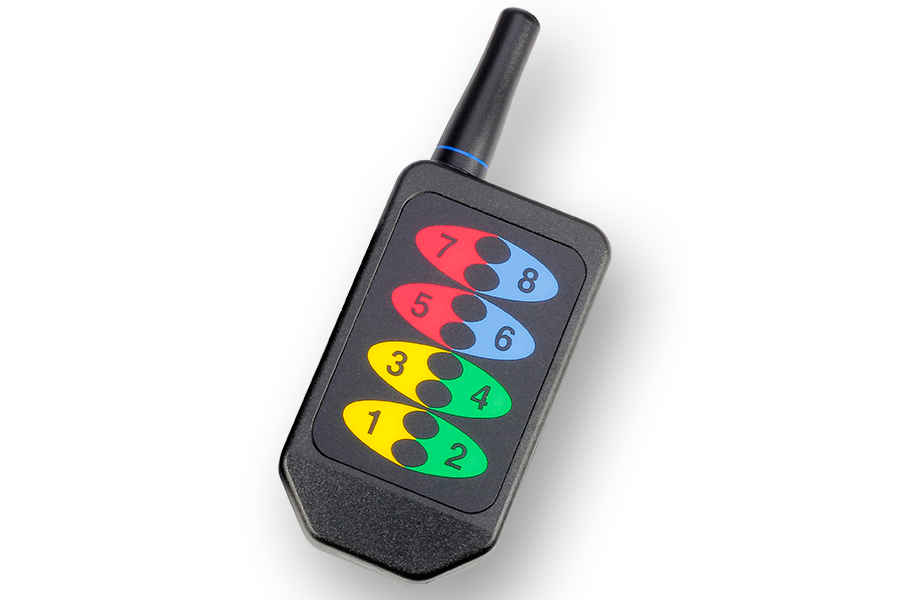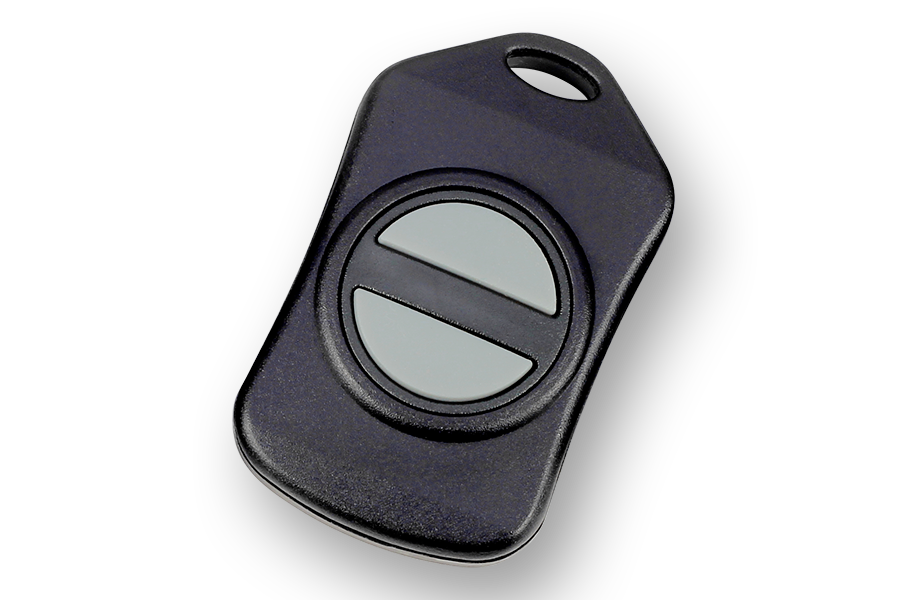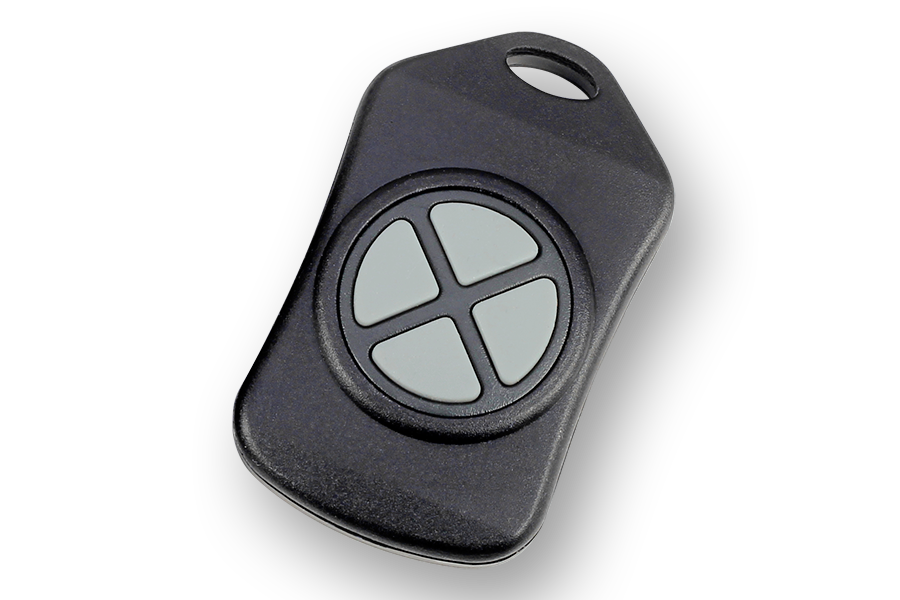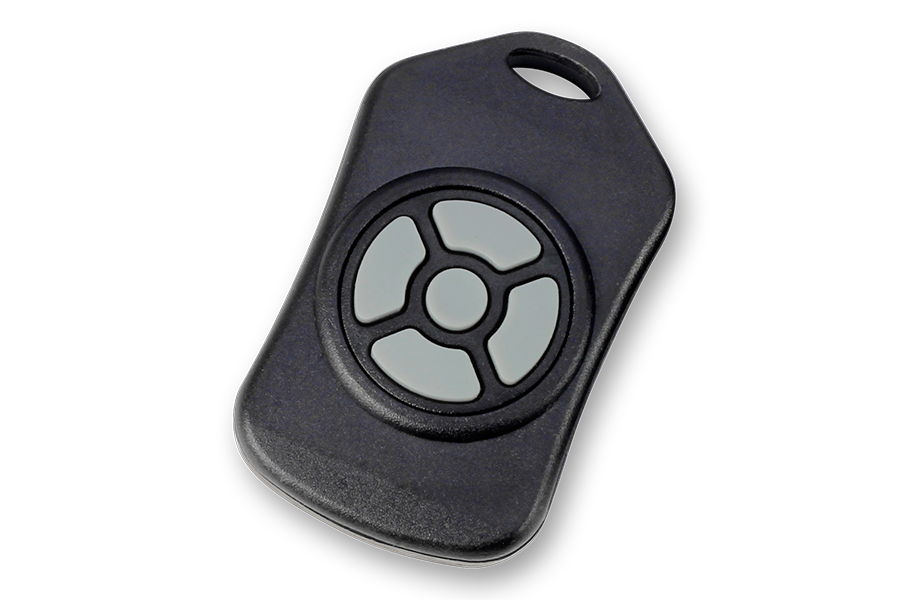Fusion Dual Interface Logic Controller with 16 GPIO or ADC and I2C
Highlights
- Dual Communication Ports Talk to 2 PCs Simultaneously
- I²C Port for Unlimited Expansion Options
- Supports Push Notification Events Based on Inputs
- Control External Relays Based on Sensor Inputs
- Base Station Software Guides you through All Features
- Dual 8-Channel 10-Bit A/D Converters (*Shared)
- Dual 8-Channel Programmable GPIO (*Shared)
- Dual UXP I/O Expansion Ports (*Shared)
- Optional RTC & Memory Expand Capabilities
- FXR Relay Expansion Port for Relay Expansion
- *Shared Features Cannot be Combined, Choose Only One
This multi-function controller contains all the brains of Fusion, without the relays. Plug in relay expansions if you want, but this controller allows you take advantage of the 16-Channel GPIO/ADC programmable input/output ports and dual interface communication port. This version is available with an optional enclosure. I2C expansion port makes it easy to add all kinds of sensors and controllers in the future. Fusion controllers with Integrated I2C Ports are more expandable than any other relay controller in the world. Fusion is truly one of the most unique products we have ever made, and we are constantly making I2C expansions and software to make it better.
Fusion controllers are the most powerful controllers we have ever manufactured. With an unrivaled number of communication options, Fusion makes it easy to communicate to any computer system, anywhere in the world.
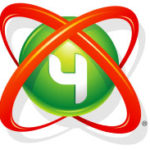
Fusion: The World’s Most Versatile Relay Controller
Fusion is a combination of computer controlled relays, with the ability to control relays automatically based on sensor input. Fusion controllers are also capable of storing a time schedule, allowing relays to turn on and off at specific times of the day.
ProXR: Computer Controlled Relays
ProXR Relay control capabilities offer the ultimate computer controlled relay solution. The 4th Generation ProXR Advanced command set is designed to give you computer control of relays, overriding the sensor and time control features configured into the controller.
Reactor: Sensor Controlled Relays
When your application demands sensor controlled relays, Reactor will let you point and click your way into a simple configuration that triggers relays, timers, and counters based on sensor values. Let Reactor manage your relay control needs based on temperature, light levels, humidity, motion detection, and much more. Compatible with most sensors, Reactor is a powerhouse relay control solution for managing your most demanding automation tasks without programming.
Taralist: Time Schedule Controlled Relays
Need relays to activate on a regular schedule? Taralist allows you to build a Time Activated Relay Schedule with up to 999 events. With Daylight Savings Time, Holidays, and Leap Year support, Taralist is capable of managing about any application that requires relay control on a regular time schedule. Link Taralist and Reactor for applications that require sensor controlled relays on a time schedule. (see recommended accessories below for important information)
I2C: Expansion Beyond Imagination
Fusion is a master of expansion, with over 300 expansion controllers that plug in to the I2C port. Plug in just about any kind of expansion you can think of, choose from a wide variety of sensors and controllers. I2C expansion is where we are currently focusing our design efforts. We are constantly developing our software drivers so you can see working examples immediately. Please note that our hardware library is currently ahead of our software samples, so if there is anything you need in particular, just let us know and we will get samples for you within a few days. Update 10/2020: This feature is no-longer recommended due to the release of newer technologies.
Fusion: Built to Expand
With 2 UXP expansion ports, Fusion controllers know how to expand. Easily add Analog to Digital Converters, Contact Closure detectors and digital potentiometers to your Fusion controller. Fusion controllers also support I2C devices, adding a wide variety of sensors to meet your application objectives. The FXR Expansion Port allows you to add expansion relay boards to your Fusion controller.
Fusion Series Controllers have 16 programmable I/O lines, which may be used for contact closure input, digital input, digital output, 8/10-Bit Analog to Digital Conversion, or I²C expansion. In most cases, these features may be mixed and matched as your application requires. Fusion Series Relay Controllers know how to connect to your application. With a simple point and click configuration, you can read a variety of sensors in just a few minutes. Fusion will automatically monitor your sensor in the background and make relay control decisions if a sensor is tripped or goes outside an acceptable range.- Contact Closure Input Capabilities
- Fusion Digital I/O
- Fusion Analog to Digital Conversion
- I2C Expandability
- Two UXP Ports
- Distance Measurement
- FXR Expansion Port
Fusion: Built to Automate
Fusion Series Relay Controllers were built to make relay control decisions automatically. From time scheduling to sensor monitoring, Fusion offers an arsenal of features designed to quickly and intuitively automate relays control functions without programming. We chose Fusion as the series name because it is a true blending of technologies we have been developing since 1995. Fusion is the most powerful series controllers we have ever created, with a clear overlap of technologies working together to create the ultimate relay control solution.
- Base Station Software
- Time Scheduling
- Reactor Processor
- Sensor Monitoring
- Input Limits and Triggers
- Trigger Events
- Timers
- Counters
- Flashers
- Override Controller
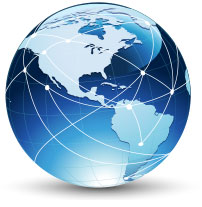
World Wide Access
Fusion controllers were designed for internet access, making Fusion the perfect choice for internet control and web-page based control applications. Pursuant to our goals of worldwide access, Fusion controllers were designed to work with WiFi, Ethernet, Web-Page Based Ethernet, and 802.15.4 Wireless. Each of these technologies adds unique benefits for worldwide access of Fusion controllers.
- MQTT and Amazon AWS IoT Support
- TCP/IP Ethernet & WiFi Interface
- Optional Ethernet Web Page Interface
- Long Range 900MHz Industrial Wireless
- Push Notification via Any Communication Technology
Recommended Accessories
Many accessories are available for the Fusion series controllers, but there are two accessories that should be considered above all others.
The TLEE Expansion Module adds the following benefits:
- Adds Real-Time Clock and additional EEPROM Memory
- Enables Taralist Time Activated Relay Scheduling Features
- Expands Reactor Features to Include 60% More Event Triggers
- Allows Fusion Controllers to Take Control of other Wireless Fusion Controllers (experimental)
- Enables Sensor Sharing between Fusion Controllers (experimental)
- Enables Push Notifications
At least one USB communications module (Part Number: ZUSB) should be on-hand, just in case you have problems with your Fusion series controller. It may not be possible for technical support to offer guidance without at-least one ZUSB on-hand for trouble-shooting purposes.
Base Station Software is a free download from our web site, and should be considered the starting point for using any NCD device. Nearly every feature of a Fusion controller requires Base Station Software for configuration and/or testing. Base Station is essential to successful use of Fusion series controllers. Base Station will talk to any Fusion controller using any communication technology, either in a localized installation or over the internet.
Fusion: Built to Communicate
Dual communication port interface means you have choices. Pick any two of your favorite communication technologies: Bluetooth, USB, WiFi, Ethernet, Long Range 900MHz Wireless or RS-232. Fusion Easily adapts to the communication technologies you need most. Need access to your controller over two different networks? No problem, just use two Ethernet/WiFi communication technologies. Fusion lives and breathes the protocols of internet communications. Fusion controllers feature TWO interface ports. Pick any two communication options below and take control using your favorite communication technology. Learn about Fusion Communication Options Below:
Communication Module Options
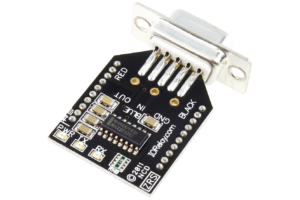
RS-232 Serial Communications Module
NCD RS-232 Serial Communication modules make it easy to integrate the worlds most prolific communication standard. Easily interface to desktop PCs and laptops for easy control via standard serial commands. Most NCD devices typically default to 115.2K Baud; however, older low-cost devices implement 9600 baud data rate as the predominate standard. Learn more about our RS-232 communications module here.
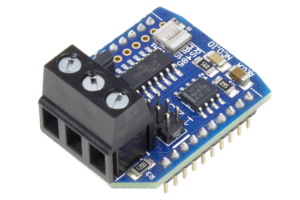
RS-485 Serial Communications Module
Our RS-485 Serial Communications Module makes it easy to network up to 256 NCD devices together at distances up to 4,000 feet. Each RS-485 node includes 3 screw-terminals for a 3-wire connection to the RS-485 master. Learn More about our RS-485 Communications module here.
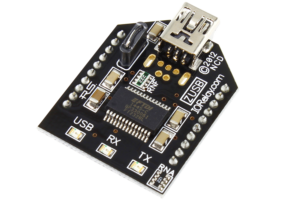
USB Communications Module
Our USB interface module makes it easy to control our devices using the USB port. Simply plug into any available USB port and start controlling our devices using standard serial commands. NCD USB Interface modules feature genuine FTDI USB to Serial Converter Chips, the very best in the industry. Learn more about our USB Communications module here.
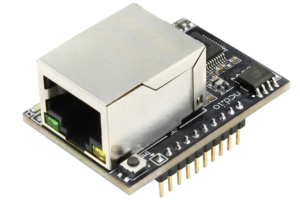
Ethernet TCP/IP Communications Module
Control NCD devices using standard Ethernet TCP/IP communications. Simply open a socket and send and receive TCP/IP data to control our devices. Our Ethernet TCP/IP Communication modules feature our 3rd Generation Ethernet to Serial communications module. Use the integrated web page to configure settings. Upload your own customized web page to add special features to this device. We have included a few sample HTML files to help you get started. Learn more about the NCD5500 Ethernet communications module here.
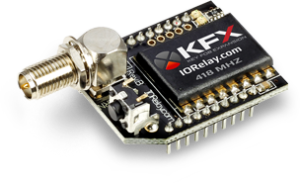
Key Fob KFX Remote Control Module
Our KFX Key Fob Remote control Module generates serial data when a remote control button is pressed or released. Remote control buttons can be used to send relay activation and deactivation commands when paired with a ProXR compliant relay controller. The KFX module may also be used to send serial commands to just about any NCD device with a compatible interface module connector. A USB Configuration adapter is required to configure serial communications. Learn more about the KFX Module here.
Large Key Fob Remotes Provide Remote Operation up to 700 feet away Line of Sight. Small Key Fobs are available that offer 1 to 5 Buttons with up to 200 Foot Range Line of Sight. Up to 40 Key Fobs may be securely paired to a single KFX Module with each remote triggering identical functions. Click on the Key Fobs to learn more about each remote or click here to see all KFX Related Accessories.
All links will open in a new window.
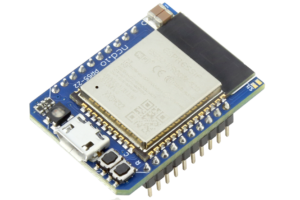
WiFi Bluetooth USB 3 in 1 Module with MQTT Support
Control NCD devices using standard WiFi TCP/IP communications or use the integrated Bluetooth for simple wireless computer to device interface using a wireless virtual COM port. Use the USB port for control over a virtual COM port for easy connectivity. This is a low-cost solution that lets you try different solutions with easy setup using a integrated Web Page User Interface for all Configuration settings. Connect to a MQTT Server over WiFi for remote operation over the internet. Learn More about our WiFi TCP/IP Communications module here.
Bluetooth
Using the Bluetooth SPP Profile, this device will connect to your PC using Bluetooth, Appearing as a Virtual COM Port. Communicate with this Device up to 200 Feet away!
WiFi
Use the Integrated Web Page to Configure Vital Settings and Use TCP Communications to Communicate to the Device using Simple Byte Packets. A integrated Relay Control Web Page is Available for Select NCD Relay Controllers.
USB
Using the USB interface, this Device will Plug into your PC, MAC, or Linux system and install a Virtual COM Port Driver
MQTT and Amazon AWS Connectivity
Connect Directly to MQTT Servers including Amazon AWS and communicate with this device from anywhere in the world. Subscribe to a Topic that contains control bytes to control the connected device. Response bytes from the connected device will be Published to the Cloud.
TCP Communications and UDP
This Communications Module sends UDP Broadcasts to help locate the IP address of the WiFi module on your Network. Once discovered, simply open port 2101 and send and receive bytes of data to control the connected device and read responses over a WiFi network.
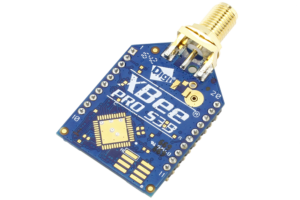
Long Range Wireless Industrial Mesh
Long-Range Wireless Mesh networking is our favorite of all wireless communication technologies. This is the ONLY communications technology NCD recommends on the factory floor, operating at a safe 900MHz. Mesh technology will hop data from one location to another to reach its intended destination, users do not need to do anything other than make sure wireless modules stay within hopping range of each other. We use the Digi 900HP-S3B module in many of our products, as this is the best industry has to offer. With a 2 mile range between modules and up to 8 hops, it is possible to cover 16 miles of wireless territory using this technology. Using high-gain antennas, this module is capable of communicating to a remote module up to 28 miles away. Please note that data hopping only works between live devices. Data will not hop between sleeping sensors. Data will hop from sensors to gateways and modems. Data will also hop between gateways and modems. Learn more about our long range wireless module here.
Essential
- Fusion Taralist Quick Start Guide
- Fusion Reactor Quick Start Guide
- Fusion ProXR Advanced Quick Start Guide
- Fusion Essentials Quick Start Guide
- API Codec Quick Start Guide
- I2C Communications Quick Start Guide
- Base Station Quick Start Guide
Documentation
- Fusion Override Controller Quick Start Guide
- Fusion Remote Access Quick Start Guide
- Fusion Ultrasonic Quick Start Guide
- Fusion Digital I/O Quick Start Guide
- Scratchpad Memory Quick Start Guide
- EEPROM Memory Map Quick Start Guide
- Fusion Master Control Panel Quick Start Guide
Communications
- NCD Gen3 Ethernet Module User Guide
- NexGen WiFi Module User Guide
- RS-485 to Wireless Converter Modem Guide
- RS-485 Network Quick Start Guide
- KFX Key Fob Communications Module Quick Start Guide
- (Deprecated Technology) WiNet Gateway Quick Start Guide
- Digi 802.15.4 Quick Start Guide
- (Deprecated Technology) Web-I WebRelay Communications Module Quick Start Guide
- (Deprecated Technology) Lantronix XPort Communications Module Quick Start Guide
- E3C DropNet Quick Start Guide
- (Deprecated – Legacy Hardware) WiFi Communications Module Quick Start Guide
- ZRS RS-232 Communications Module Quick Start Guide
- ZUSB USB Communications Module Quick Start Guide
- (Deprecated – Legacy Hardware) ZBT Bluetooth Communications Module Quick Start Guide
Tutorials
- Using Comm Operator to Control Ethernet Relays
- Linux Relay Controller using Netcat for Ethernet and WiFi
- Using Comm Operator to Control USB Relays
- Choosing the Right USB Relay Controller
Download NCD Base Station
Official Repository
WiFi Module Setup
The Wi-Fi Communications Module must be configured in order to connect to your network using the Wi-Fi Configuration Kit. The Wi-Fi Configuration Kit consists of a small black board with 3 LEDs. The Configuration Board will be labeled ZIGMO. The module may have to be removed from the board and plugged into the ZIGMO as shown. The ZIGMO will plug into the USB port of your computer for configuration and some USB drivers may need to be installed on your computer. Base Station software is required to configure the Wi-Fi communications module and is available as a free download. This software identifies compatible Wi-Fi routers in your area and assigns the router you have chosen to the Wi-Fi communications module. Network security options may be configured using this software including passwords. You can find the NCD Base Station Software at ncd.io/start.
Introduction to Ethernet Relay Control
This video will introduce you to Controlling Relays over your Local Area Network (LAN) using Ethernet Relay Controllers from store.ncd.io. Ethernet can be one of the more complicated communication interfaces due to the network protocol stack. We break it down for you to show you the most important parts for Relay Control. You can find NCD Base Station at ncd.io/start.
USB Intro
We explain the advantages and disadvantages to USB communications and how it effects our Relay Controllers and your application. Some of the information is outdated as we’ve moved away from controlanything.com. Most modern operating systems come with the FTDI driver installed so you should just need Base Station
USB FTDI Communication Module Compatible with the Digi XBee ® Controlling Relay
FT232RL USB Interface Adapter Similar to the Digi XBee ® footprint shown controlling a 16-Channel Relay Controller Board Available from https://store.ncd.io/product/usb-communications-module-ft232rl-zusb/ Drivers Available from FTDI: http://www.ftdichip.com/FTDrivers.htm Base Station Software: ncd.io/start Digi.com offers a wide variety of XBee Interface modules for industrial wireless applications. Digi XBee® devices are compatible with NCD products.
Fusion Introduction
Get an overview of our Fusion series Industrial Relay Controllers. Get a breakdown of all of the hardware and firmware on the device as well as the communication modules that are offered to take your application and make it future proof. Reactor logic lets Relays respond to onboard Sensors. Taralist lets your Relays respond to time and schedule. ProXR lets you manually override and control any Relay.
USB Setup
Learn how to set up you own ZUSB Module to work with your NCD Relay Controller. For complete instructions and details on how to use an NCD ZUSB Module see our article at https://ncd.io/zusb-usb-communications-module-quick-start-guide/ Portions of this video may be outdated as we have moved from controlanything.com since this video was created.
802154 RANGE
A simple demonstration of the Wireless Range of 802.15.4 in the 300′ and 1 Mile Range with and without obstacles.
Wireless Range Testing Setup
This video tells you the set up that we used to get real world ranges on our wireless communication modules.
WiFi Introduction
Introduction to our WiFi Module and technologies. Learn the advantages, disadvantages as well as tips and tricks for using WiFi Relay Controllers available from store.ncd.io. You can find more in depth information on how to use and configure your WiFi Relay Controller at https://ncd.io/wifi-module-quick-start-guide/.
Ethernet over Virtual Serial Setup
Learn how to communicate to your Ethernet Module using a Virtual COM Port. Virtual COM Port communications are ideal for existing applications that make use of our wired and wireless relay control already and want to quickly add support for Ethernet Relay Controllers. Virtual COM Port communication allow you to send commands to an Ethernet Relay Board as if it were directly connected to the controlling PC.
Web-i FTP Instructions
Learn how to FTP and customize your Web-i Interface. If you want to make some changes to your Web-i interface and how it works you can follow the instructions on this video and be up and developing in minutes.
Web-i Configuration
Learn how to properly configure your Web-i. Learn how to alter the configuration of your Web-i to better suit your needs. Whether customizing macros, changing the UDP broadcast, or setting a static IP address or password this video will get you up and running.
Getting Started with Web-i
This video will show you the basics on how to get started familiarizing yourself and using the Web-i Interface. This software used to find your Web-i Controller has changed. You can now use NCD Base Station to find your Web-i Device. You can download Base Station at ncd.io/start.
Web-i Introduction
Get the rundown of the benefits and capabilities of using a Web-i in your next project. From relay control to sensor monitoring Web-i gives you an easy to use interface for your web controlled relays.
Finding the Com Port
Learn how to find the COM Port on your windows based computer. You can also use Base Station to find the COM Port of your Relay Controller. Base Station can be downloaded at ncd.io/start.
Wired Communications
Get the rundown on the pros and cons of all the Wired Communication Interfaces we offer. If you want to know which wired technology will best suit your needs this video will get you the information you need in just a few minutes. Whether you need the power of ethernet or the simplicity of RS-232 we have something to fit your application.
Fusion Compatibility
Fusion controllers are compatible with a wide range of hardware. From communication modules to I2C devices, Fusion controllers are the world’s most expandable relay controllers. Take a look at all the expansion devices available:
- UXP Expansions Controllers (our First generation expansion devices)
- FXR Relay Expansion Controllers (all Fusion specific expansions)
- I2C Expansion Controllers (all Future expansions will use the I2C bus)
- Communication Modules (Fusion is compatible with all of them)
I2C Expansion Notes
Please note, we are working on software drivers for all of these devices, but our hardware library currently exceeds our software samples. If there is anything you need in particular, please let us know and we will try to get you a working sample in a few days.
900HP-S3B Wireless Compatibility Notes
Notice: Compatibility Notes Does NOT Apply to the Following Products:
- NCD Enterprise Solutions
- NCD Wireless Sensors
- NCD Enterprise Modems and Gateways
Notice: Compatibility Notes Applies to NCD Industrial Products, Including Fusion, ProXR, ProXR Lite, Taralist, and Reactor Series Products.
Compatibility Notes
When using an 900HP-S3B communication module, it is essential that you use the ZIGMO_PCB to configure the module settings. Long-Range wireless sensors may be programmed over the air without removing the communications module.
A 900HP-S3B Modem or a gateway of some kind that support the 900HP-S3B communications module will also be required.
Ethernet TCP/IP Compatibility Notes
This device periodically sends UDP Packets on port 13,000, which help identify the IP address of this device on your network.
RS-232 Serial Compatibility Notes
The NCD RS-232 Serial communications module is compatible with standard RS-232 signals (+/-10VDC), which are not directly compatible with UART signals from a microprocessor. If you are working with Arduino, Microchip PIC, or other common microcontroller, a communications module is not required. Microcontrollers will directly talk to the on-board processor of all NCD controllers.
RS-485 Serial Compatibility Notes
The NCD RS-485 Serial communications module is compatible with NCD ProXR, ProXR Lite, Fusion, and Taralist series controllers. This module was designed to work with NCD devices, but may be used with devices outside the NCD family. This device acts as a transparent RS-485 to USART serial converter. Non-NCD products will require a software networking protocol to support multiple devices.



